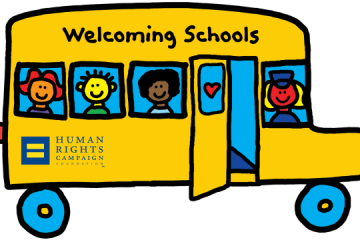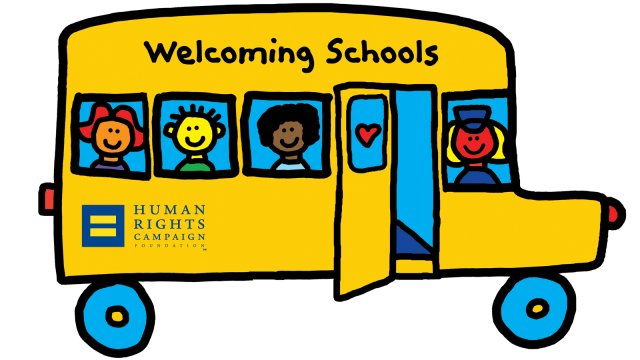HRC Joins Global Voices to Speak Out on Capitol Hill about LGBTQ Refugees
Post submitted by Senior Global Programs Officer Jay Gilliam
An overflow crowd of Congressional staffers…
Read moreDedicated To People, The Planet, and All Its Inhabitants – Since 1996

Post submitted by Senior Global Programs Officer Jay Gilliam
An overflow crowd of Congressional staffers…
Read moreToday, HRC blasted the Arkansas Supreme Court for striking down a local ordinance banning discrimina…
Read moreWednesday, February 22, 2017 – 5:26pmUsing Diplomatic Relations with Cuba to Fight Human TraffickingBy Cassidy Slater
Read more
Today, HRC and the ACLU of South Dakota slammed a vote by the South Dakota Senate passing Senate Bill (SB) 149 — discriminatory legislation targeting LGBTQ people and other minorities. SB 149 would enshrine taxpayer-funded discrimination into state law by allowing state-funded adoption and foster care agencies to reject prospective LGBTQ adoptive or foster parents based on the agency’s purported religious beliefs.
“Let’s be clear. This ‘license to discriminate’ proposal is a direct assault on LGBTQ South Dakotans and their families,” said HRC Legal Director Sarah Warbelow. “Taxpayer money should never be used by state-funded adoption agencies to discriminate against prospective parents based on factors that have nothing to do with good parenting. This measure could have consequences not just for LGBTQ couples, but for single people, divorced people, or even those of a different faith. The South Dakota House of Representatives must reject this atrocious legislation allowing discrimination contrary to the best interests of children in desperate need of loving, caring homes.”
“This bill works against the needs of vulnerable children in the foster care system in South Dakota by denying them access to good families and important services,” said ACLU of South Dakota Policy Director Elizabeth A. Skarin. “Our legislators must take a stand for all South Dakotans — and especially vulnerable children — and ensure that discrimination doesn’t get in the way of loving families seeking to provide homes for those who don’t have them.”
SB 149 would allow state-licensed and taxpayer-funded child-placement agencies to disregard the best interest of children, and turn away qualified South Dakotans seeking to care for a child in need — including LGBTQ couples, interfaith couples, single parents, married couples in which one prospective parent has previously been divorced, or other parents to whom the agency has a purported religious objection. The measure would even allow agencies to refuse to place foster children with members of their own extended families — a practice often considered to be in the best interest of the child. A qualified, loving LGBTQ grandparent, for example, could be deemed unsuitable under the proposed law. It would also allow agencies to refuse to provide appropriate medical and mental health care to LGBTQ children if the agency has a purported moral or religious objection to providing those services. Shockingly, under SB 149, an agency couldn’t lose its license or contract as a result of subjecting a child to abusive practices like so-called conversion therapy if it claimed such “therapy” is compelled by religious belief.
Research consistently shows that LGBTQ youth are overrepresented in the foster care system, as many have been rejected by their families of origin because they are LGBTQ. These young people are already especially vulnerable to discrimination and mistreatment while in foster care, and SB 149 would only exacerbate the challenges they face.
The attack on fairness and equality in South Dakota is part of an onslaught of bills being pushed in 2017 by anti-equality activists around the country. HRC is currently tracking more than 70 anti-LGBTQ legislative proposals in 24 states. For more information, visit http://hrc.im/2017legislature.
Read moreNew York City—Human Rights First announced today that former Obama Administration senior official Rob Berschinski has joined the organization as its new Senior Vice President for Policy. Berschinski is a former Deputy Assistant Secretary of State for Democracy, Human Rights, and Labor with extensive experience in national security and foreign policy. He will lead the organization’s efforts to advance a U.S.
“Tupelo is an awesome town. I actually spoke here, told my story.”
Hayden, a transgender man…
Read more

Post submitted by Kimmie Fink, Welcoming Schools Facilitator
It’s a challenging time for teachers. In the last few weeks, as executive orders to fund a border wall with Mexico and suspend the U.S. Refugee Admissions Program have been handed down, educators are again in the position of not just explaining new rules and policies to students, but supporting those who are understandably worried for themselves and their families. Teachers must be prepared to address bias-based bullying, advocate for refugee and immigrant children and families, and create classroom environments that honor all identities.
That might seem like a daunting prospect, especially for elementary school teachers. High school students may be better able to articulate their thoughts and fears through academic conversation or writing, but elementary students experience the same anxiety without that kind of outlet. Fortunately, elementary educators have a “go-to” strategy for difficult situations: read-alouds. For teachers wanting to address issues concerning immigration as they pertain to children, Welcoming Schools has developed the following list: Books for Students: Children, Families, and Immigrants.
For younger children, consider sharing books about immigration and refugees with message of inclusion. The Color of Home, by Mary Hoffman, tells the story of first grade Somali refugee Hassan. Hassan struggles to adjust to a new language, culture, and home but finds an outlet through painting.
A chapter book, such as Julia Alvarez’s Return to Sender, is an excellent option for intermediate readers. Alvarez’s novel centers around the challenging friendship between the son of a farmer and the daughter of a migrant worker.
Inclusive read-alouds serve a dual purpose. They provide children with both mirrors and windows. Students should see themselves reflected in literature, and they should also have the opportunity to learn about those who are different. Read-alouds like those featured by Welcoming Schools simultaneously validate the experiences and identities of minority groups and provide opportunities for developing empathy and understanding. These days, all our students could use a lot more of that.
HRC’s Welcoming Schools is the nation’s premier program dedicated to creating respectful and supportive elementary schools in embracing family diversity, creating LGBTQ-inclusive schools, preventing bias-based bullying, creating gender-expansive schools, and supporting transgender and non-binary students.
Read moreIn the wake of the deaths of at least seven transgender people in just the first two months of this year,…
Read more
Post submitted by HRC Global Fellow Diego Mora and translated by HRC Global Intern Javier Cifuentes
Alth…
Read more